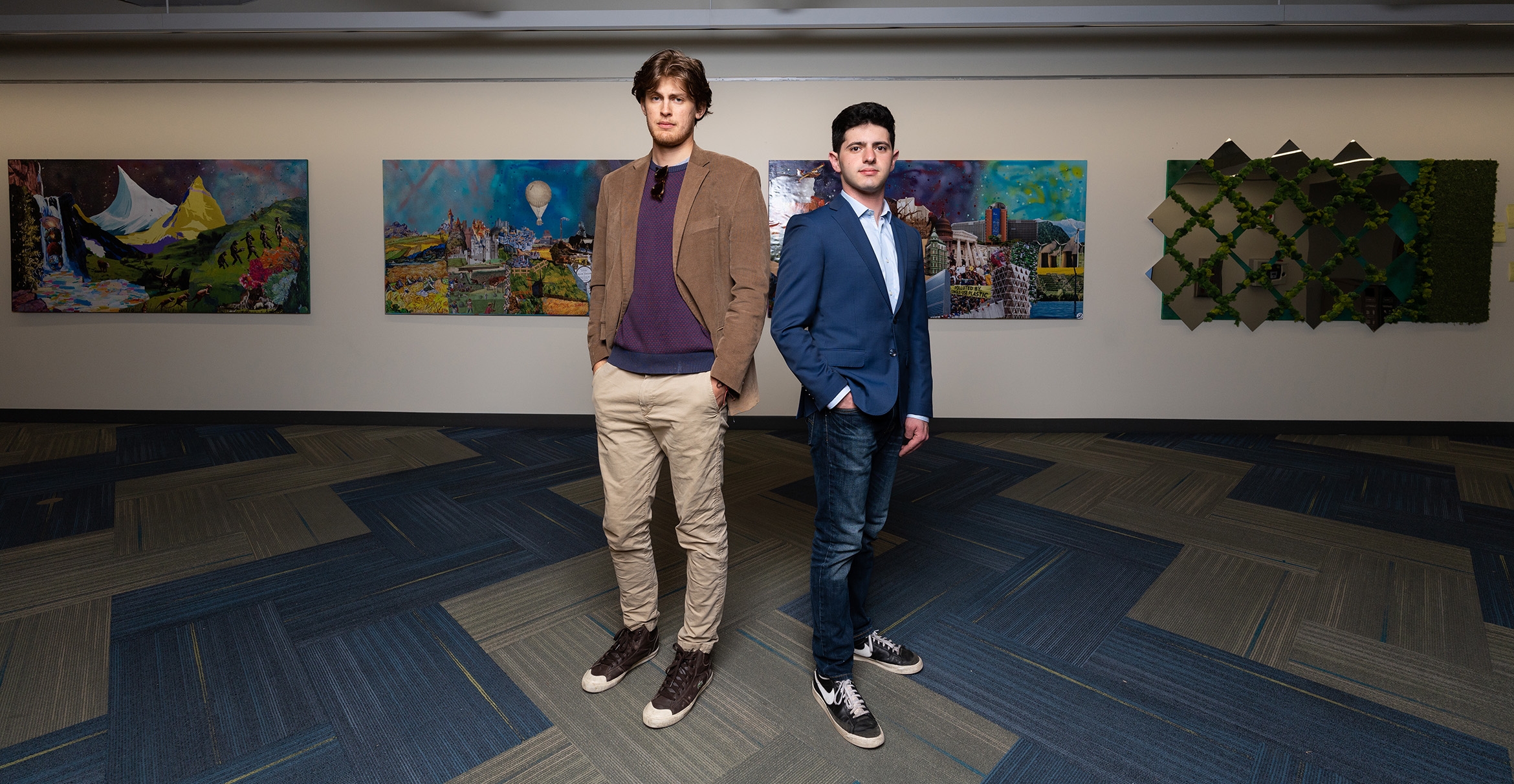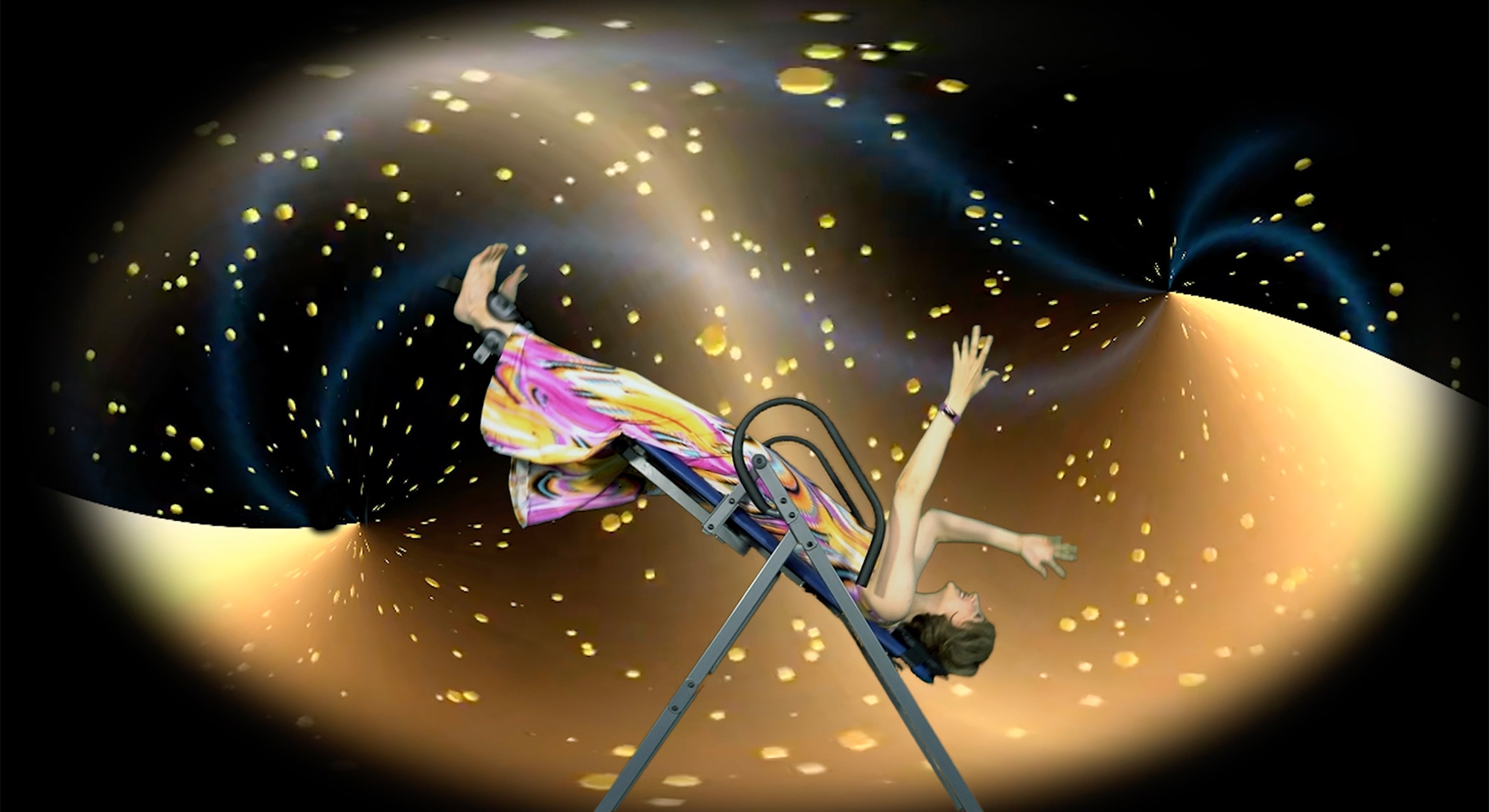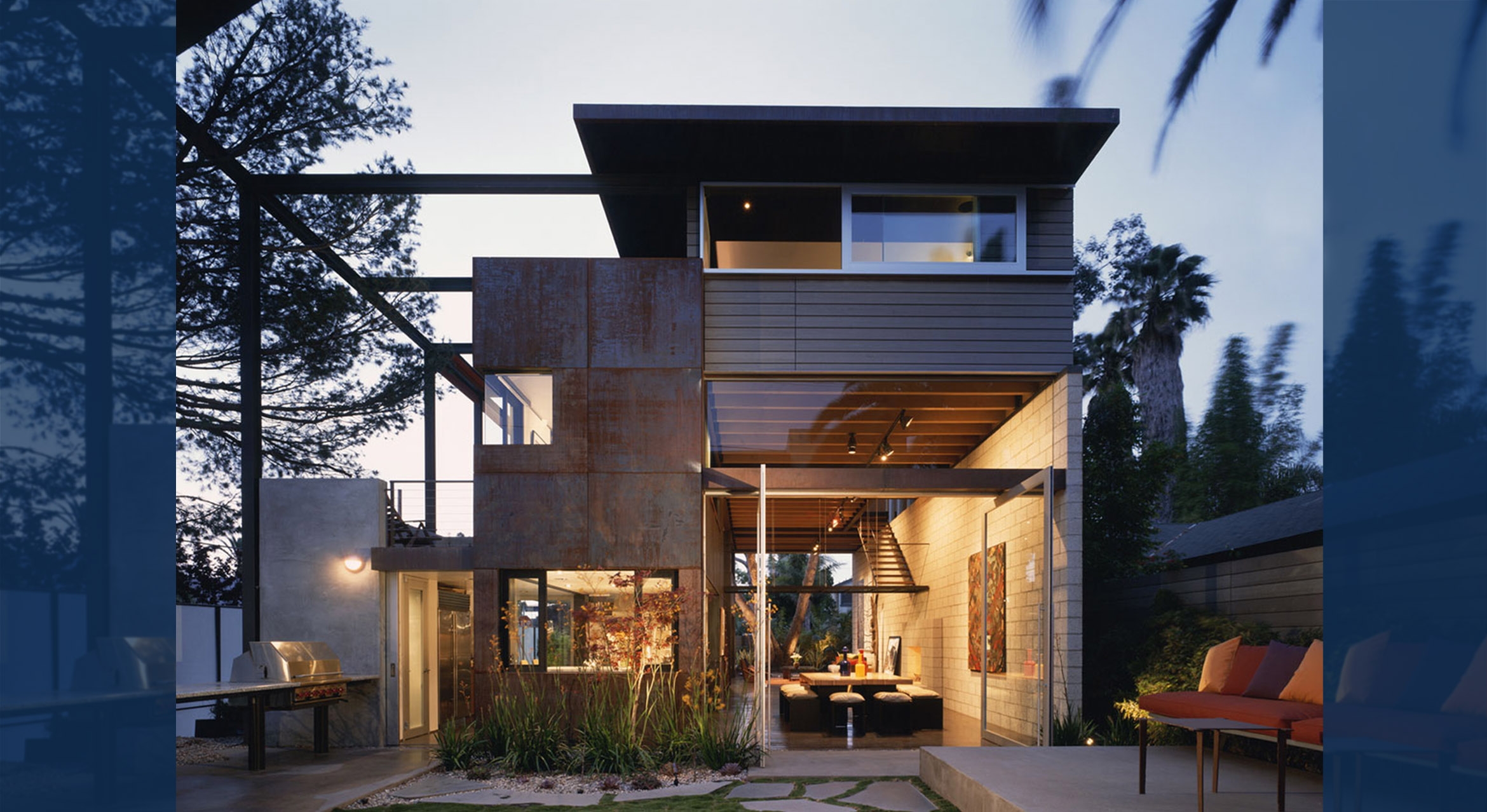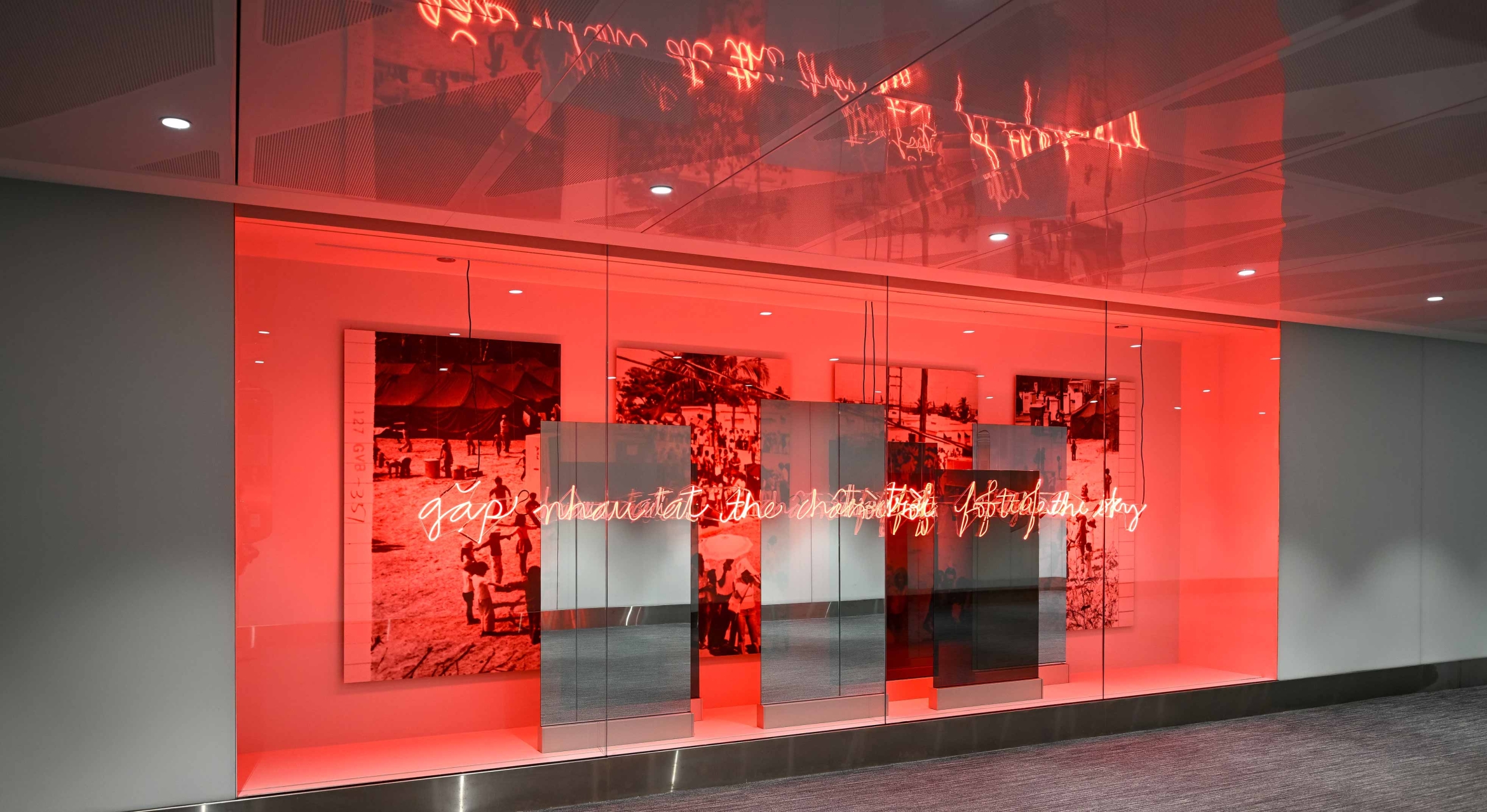
New library installation attempts to spark serious thinking about human impacts on the environment
First, create something eye-catching — a visual statement large and striking enough to entice young scholars to put down their phones and check it out. Second, place the object in a space so prominent that it’s all but impossible to avoid.
Hoping to inspire self-reflection among their peers about the environmental consequences of human behavior, two ambitious emerging artists have done just that.
UC Santa Barbara undergraduates Lukas Kraak and Noah Weiss are the creators behind the new art installation “Anthroterra,” which is enormous, colorful and intentionally provocative. And its location at UC Santa Barbara Library, in the lobby by the oceanside elevators, virtually assures a captive audience. (It is on display through June 30.)
“That’s one of the most highly foot-trafficked spots on campus,” noted Kraak. “And because they have been doing construction on the elevators, there are always delays.”
“We want that student who is anxiously waiting for their elevator to stop and say, ‘What’s this?’” added Weiss.
“Anthroterra” is a series of four plywood panels, each of which measures 4 feet by 8 feet. The first three are bursting with imagery, created via photo-collage and spray paint and the last panel is made with mirrors.
“The collage medium allows us to have a narrative thread,” said Kraak. “It’s telling the story of human development — what it looked like through the ages, and what it could become.”
The first panel represents prehistory — nature untouched by humans. The second depicts how humans have impacted nature, via agriculture and industry. The third shows where we are at today, as we start to reckon with our impact on the natural world; it includes images of a wind farm and other attempts to live in harmony with nature.
The final panel is “a look into a green future,” Weiss said. “There are a bunch of mirrors. It’s an opportunity for self-reflection — to look at yourself and how you see yourself taking action and creating meaningful change.”
“I hope visitors will think about our individual and collective relationship to our planet and will be inspired to learn more about the challenges and opportunities we face,” said Alex Regan, events and exhibitions librarian, who along with research and engagement librarian Kristen LaBonte, mentored the creators and helped shepherd the project to completion.
The project was conceived and developed in the Environmental Leadership Incubator (ELI), a year-long program that trains undergraduate students to become environmental leaders. As part of the program, the participants — 25 to 30 per year — create, design and ultimately implement a project intended to drive positive environmental change.
“We have had quite a range of diverse projects — from making UCSB bee-friendly to creating a hydroponic farm,” said ELI program manager Erika Zollett, “but we’ve never had an art exhibit before.”
Weiss and Kraak were both in the program for the 2021-22 school year. Although they didn’t know each other, they quickly found they had similar goals and worked well together. So they decided to collaborate, considering and discarding several ideas before coming up with the installation.
“In the early stages, we talked to everybody we could and gathered as much information as possible,” recalled Kraak, who is from Palos Verdes. “The library wanted to put it up this winter, so we had a lot of time to work on it. This allowed it to grow organically.”
One small issue: Kraak had no art experience whatsoever, and Weiss had only a bit, having done scenic construction for theater and live events at his high school in Los Angeles. This did not inhibit their ambition. In search of “the location where it would get the most attention possible,” they approached Regan. She pointed them to LaBonte as a mentor, reserved the lobby for its display, and provided them with space in the library where they could work on it.
The pair then received $4,553 — enough to cover their costs and then some — from UC Santa Barbara Sustainability’s The Green Initiative Fund (TGIF), which provides money for projects that reduce the university’s impact on the environment and/or helps “green” the campus. Theirs was the first project to emerge from the Environmental Leadership Incubator to get a TGIF grant.
Regan noted that the artwork nicely complements another major initiative the library is spearheading this winter: The latest edition of UCSB Reads, a campuswide reading and events program, all centered around one book and culminating in a free lecture by the author. This year’s pick is Charles Montgomery’s “Happy City: Transforming Our Lives Through Urban Design,” which also has environmental themes.
Although “Anthroterra” is already on display, it continues to evolve. Weiss and Kraak are currently coming up with a series of questions they hope will help viewers engage with the work and the issues it raises. They plan to post several of them next to the piece, perhaps alongside some of the more interesting answers they receive. “It’ll be an opportunity for the community to engage with the piece in a meaningful way,” Kraak said.
Kraak, a senior, and Weiss, a junior, are environmental studies majors; Kraak is also an economics major. Both say the project has given them invaluable knowhow regarding how to take a project from the idea stage to implementation. “It’s incredible real-world experience,” said Weiss. “We couldn’t be more grateful.”
But beyond their own personal growth, the pair’s larger goal is to influence the thinking and behavior of their peers.
“I love informative art, where you learn and engage people at the same time,” said Kraak. “You can really change people’s minds.”
“This is a statement art piece,” added Weiss. “We’re harnessing the power of art to further our goals. Art can ignite a change within people. It can inspire them to take action.”
Shelly Leachman
(805) 893-2191
shelly.leachman@ucsb.edu



